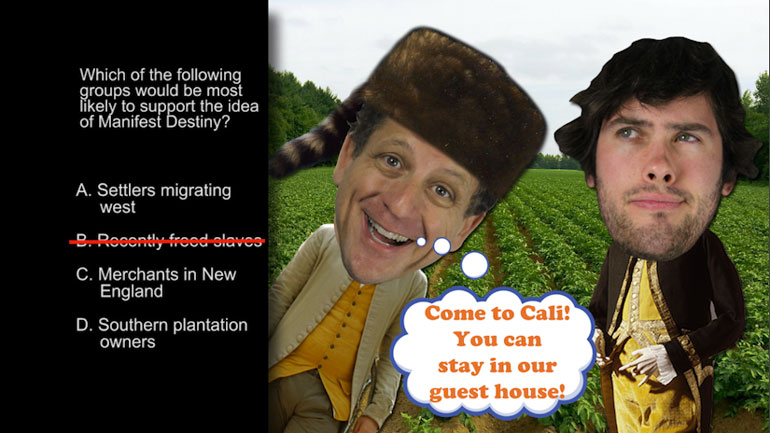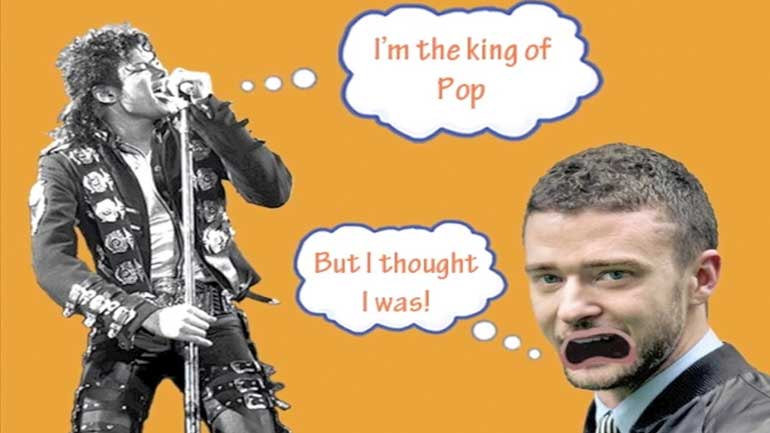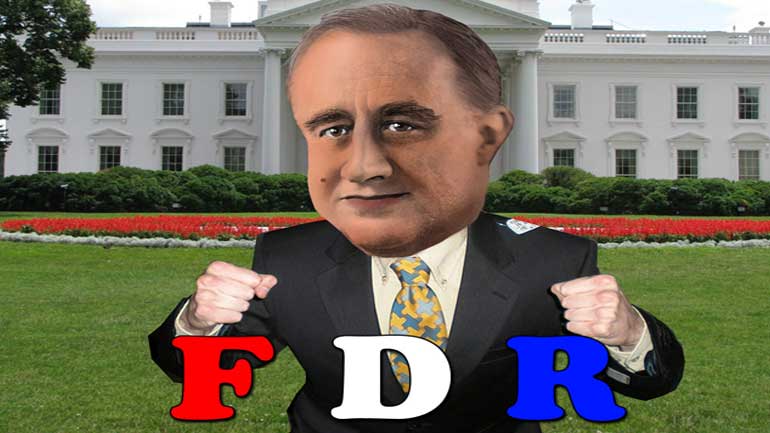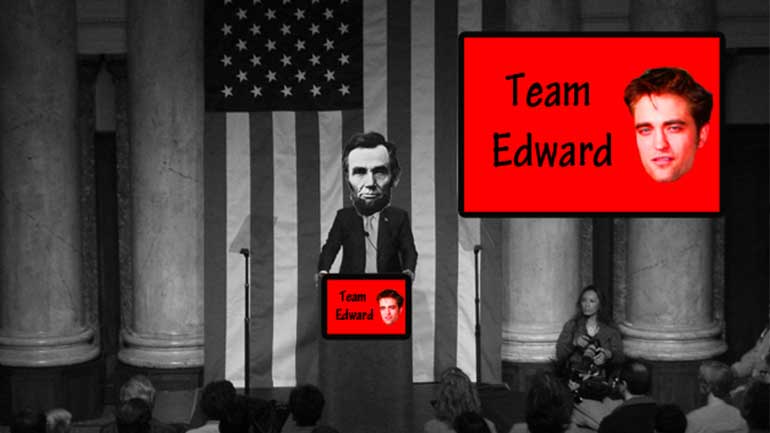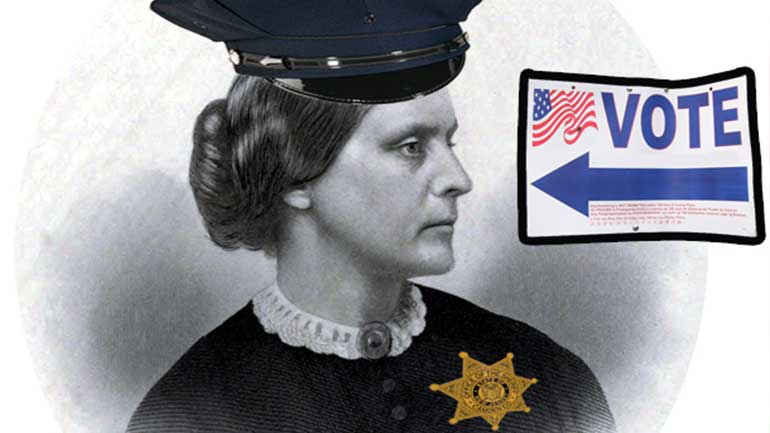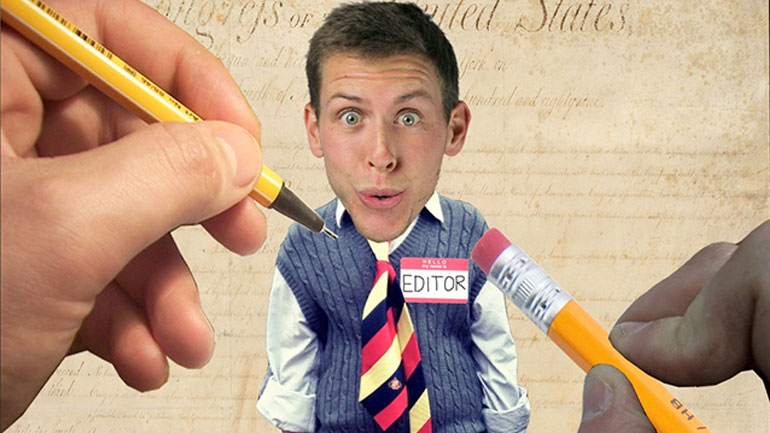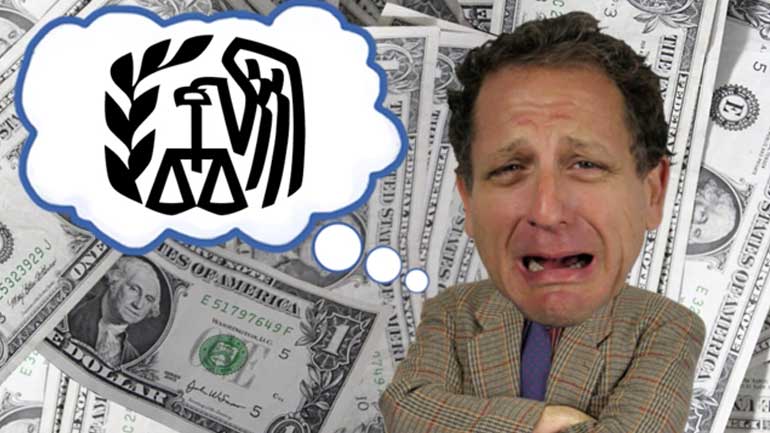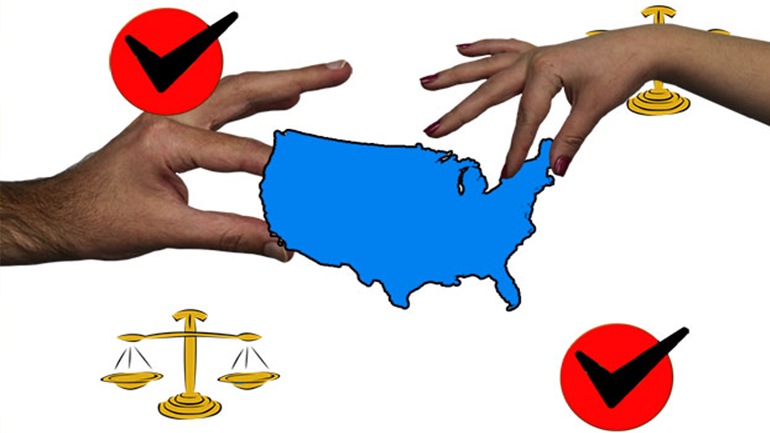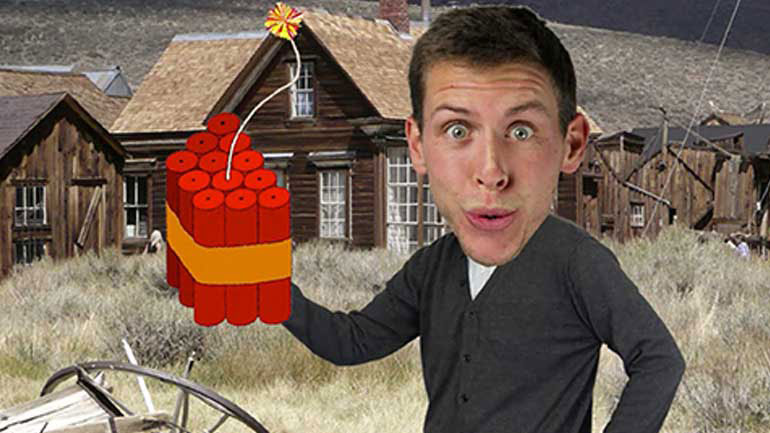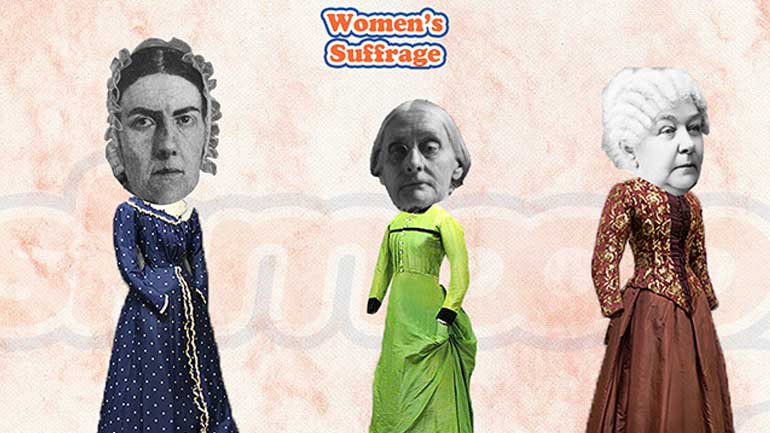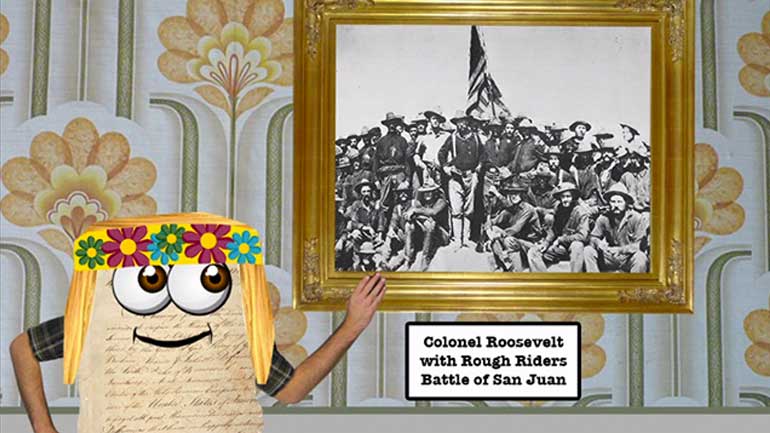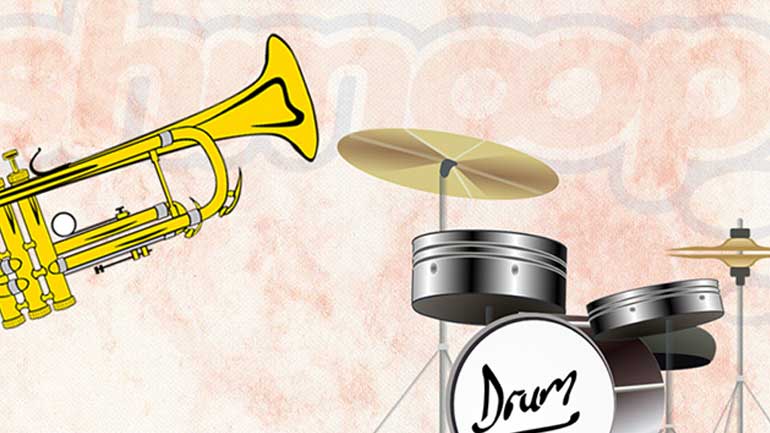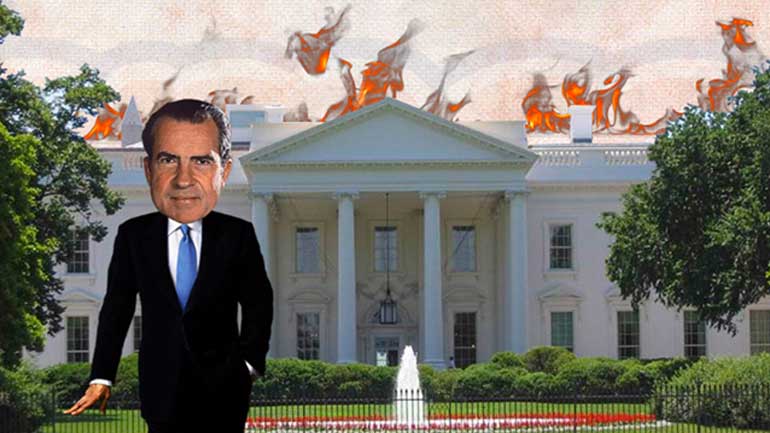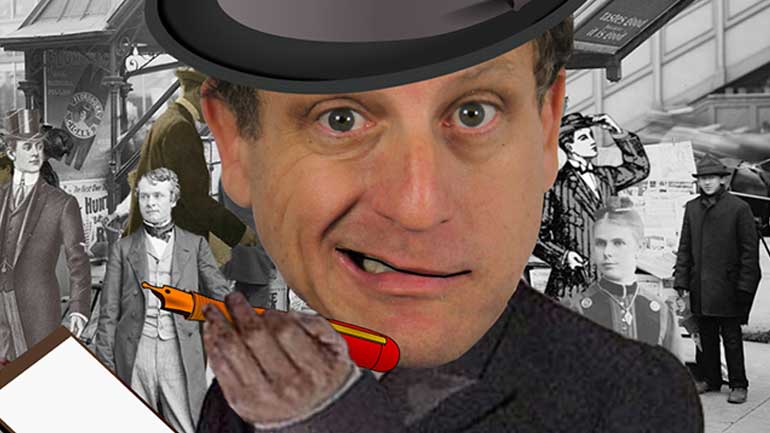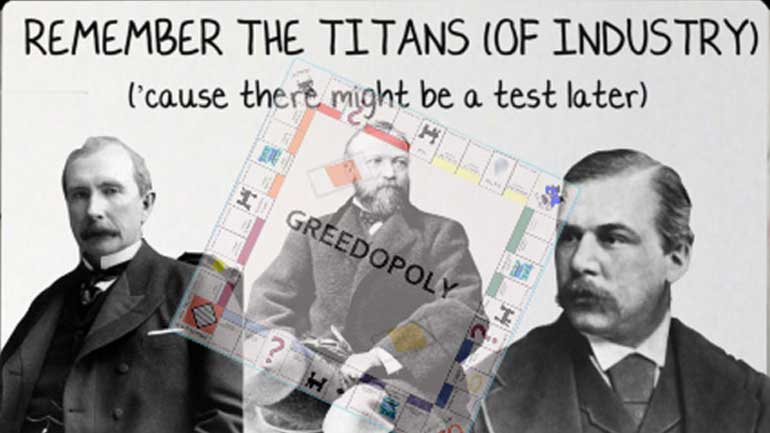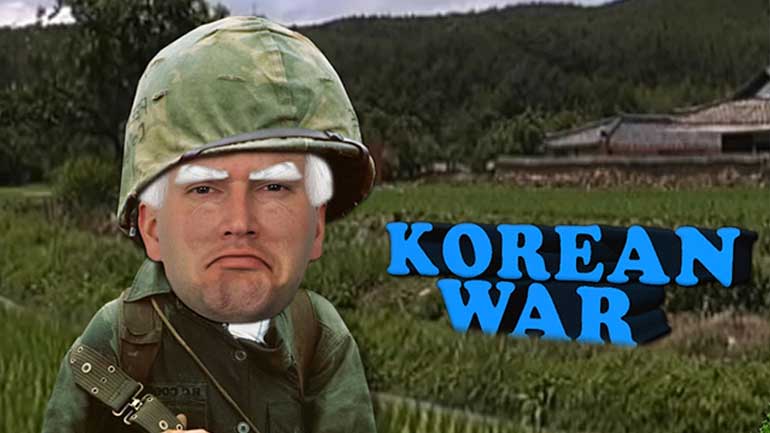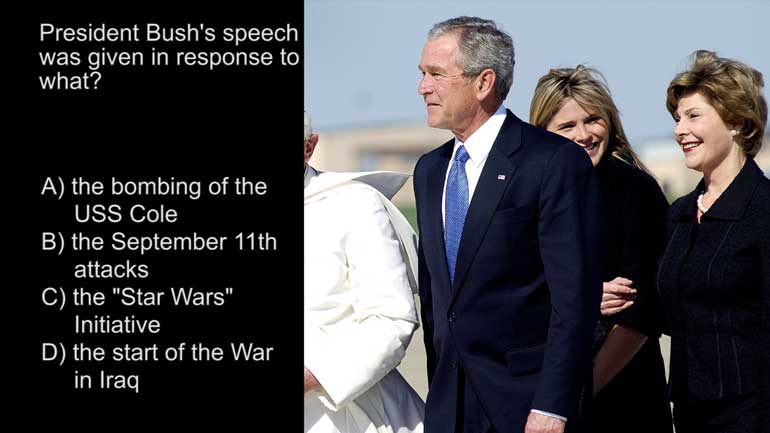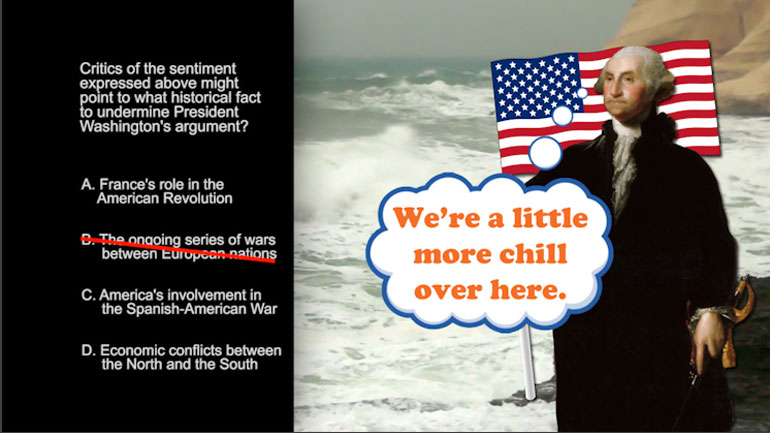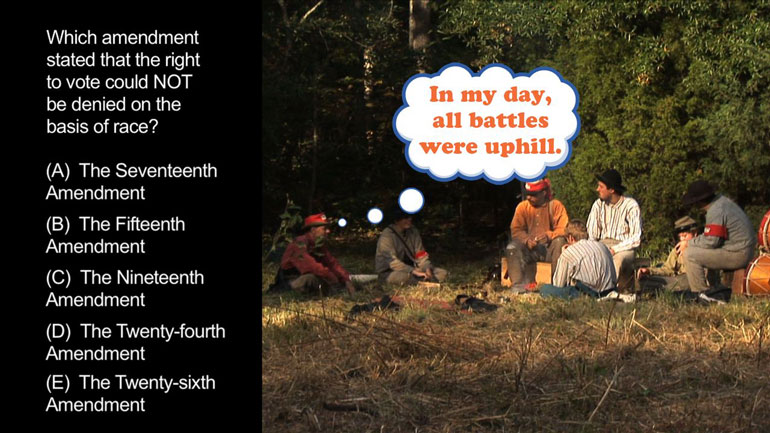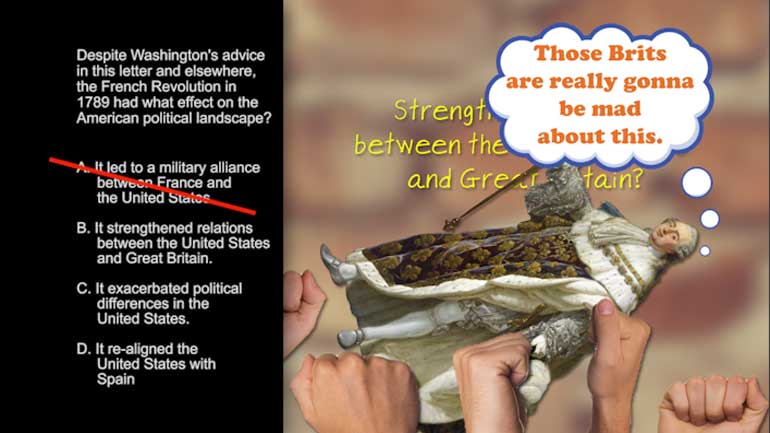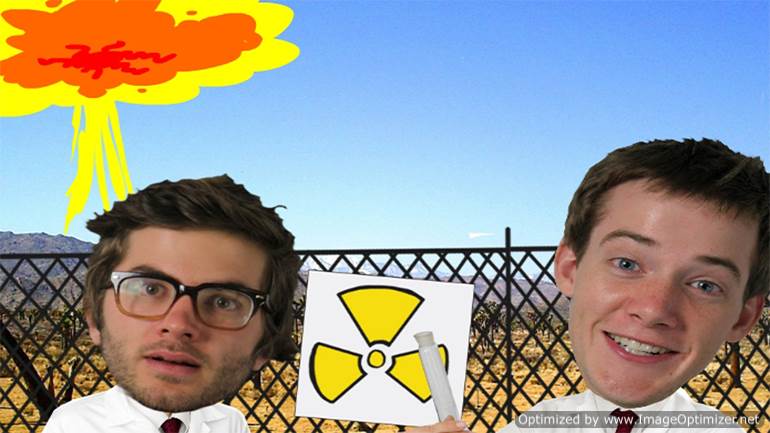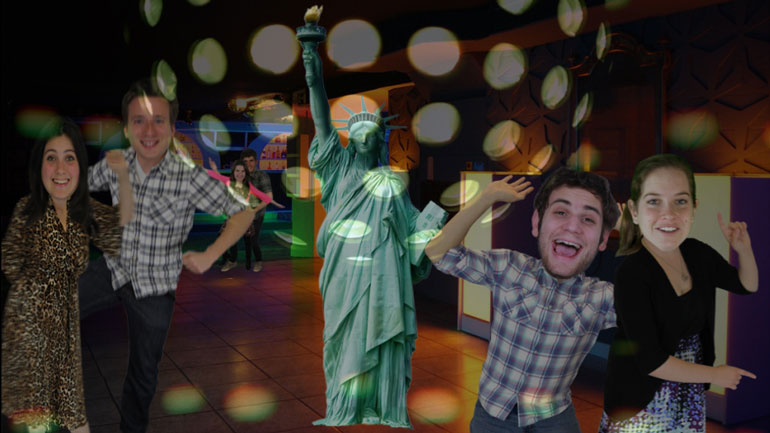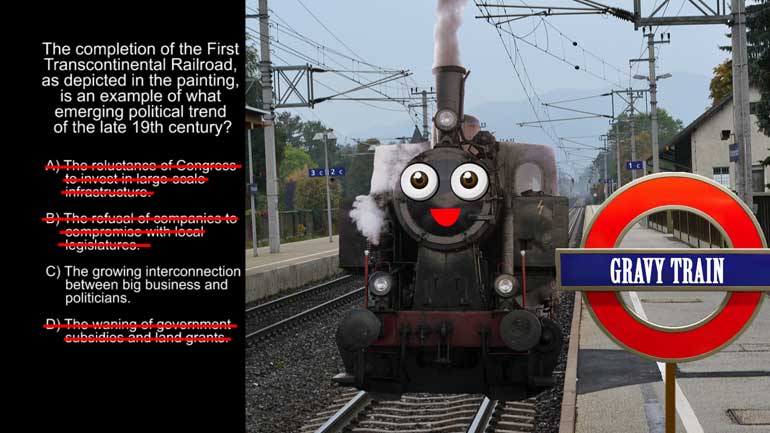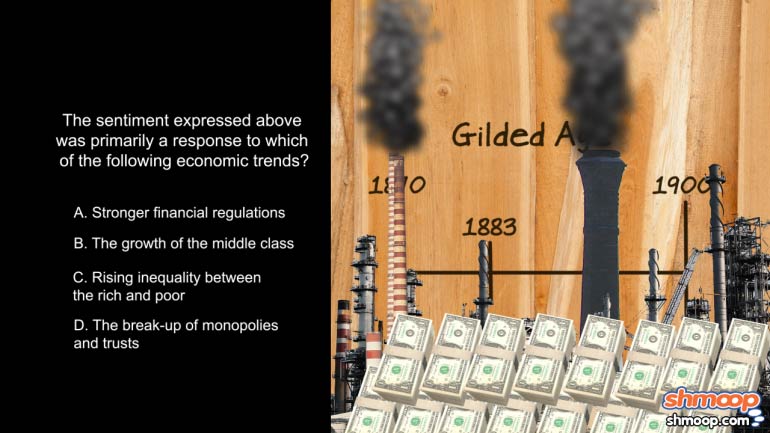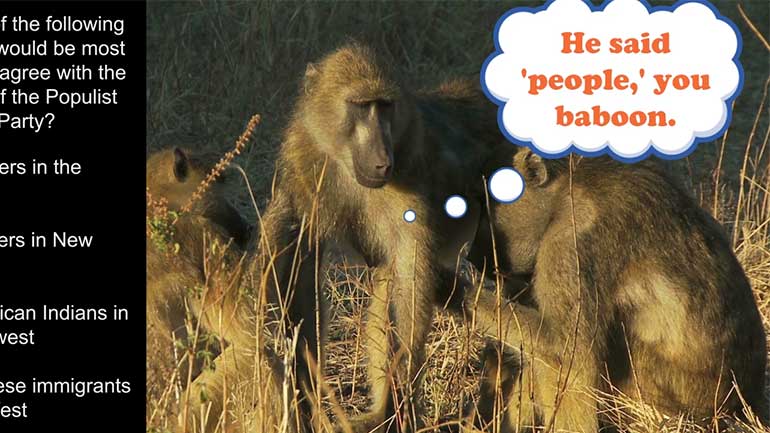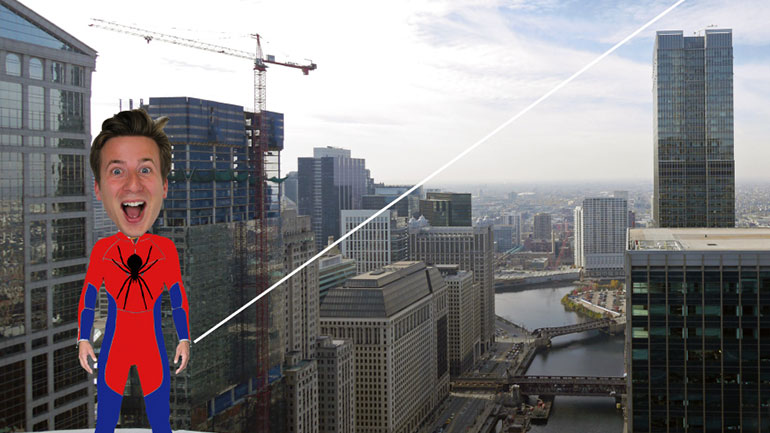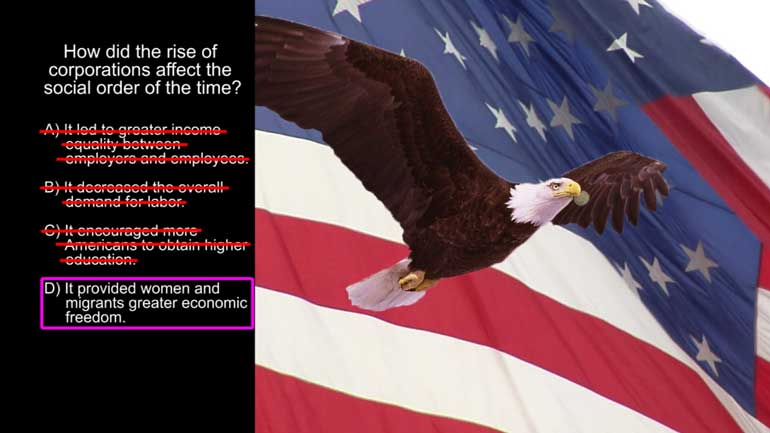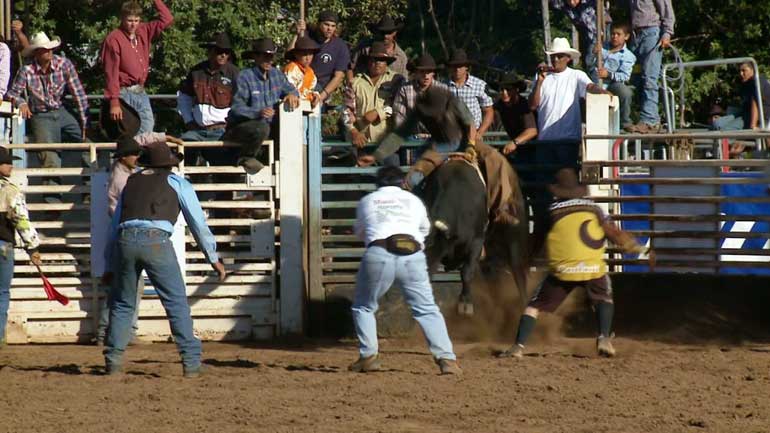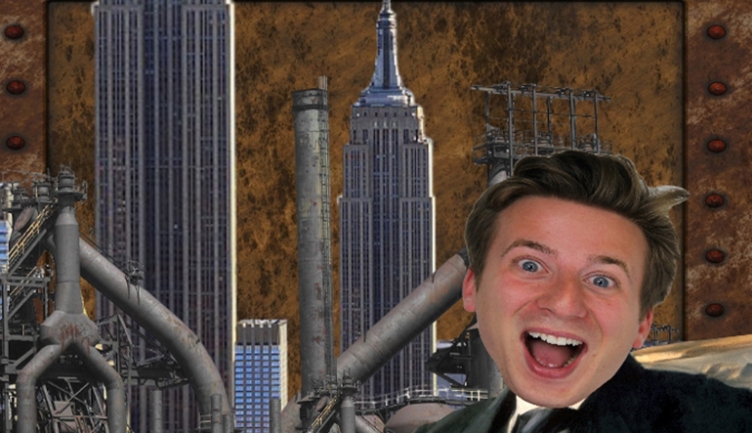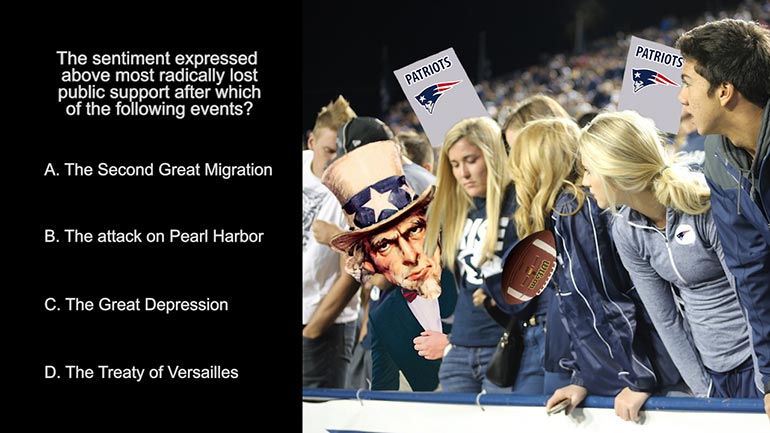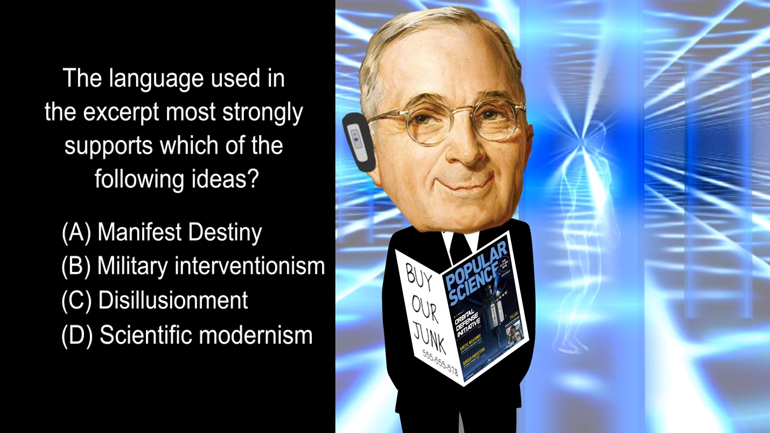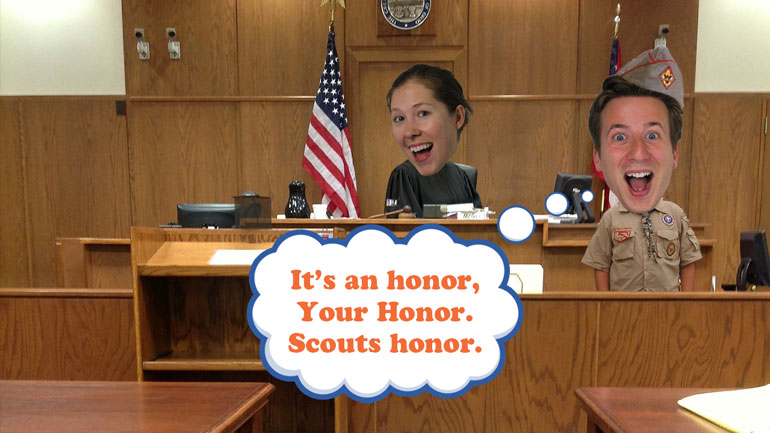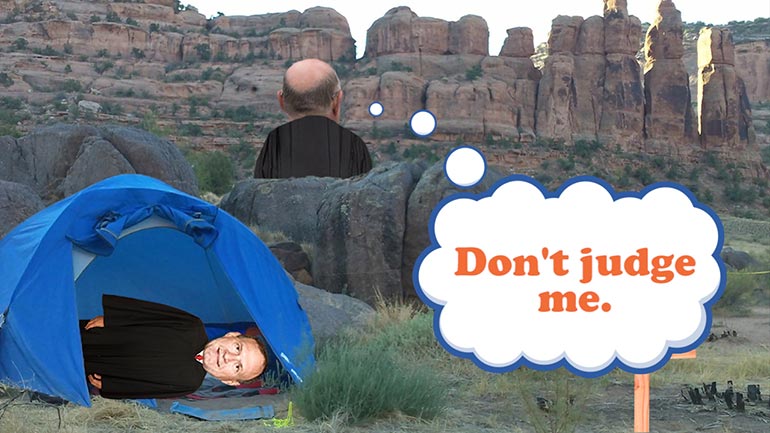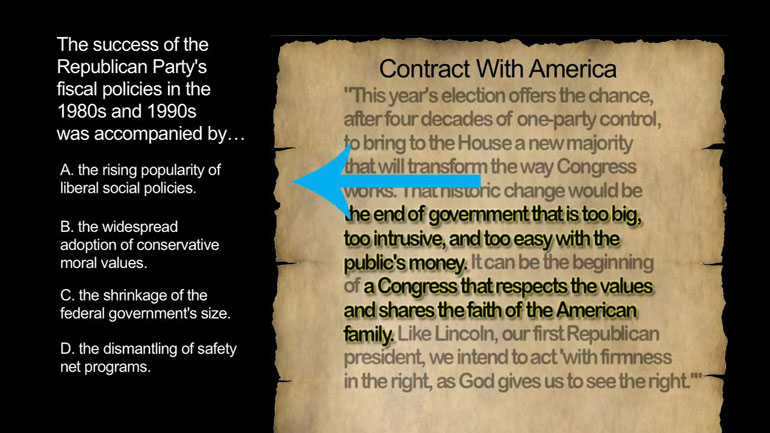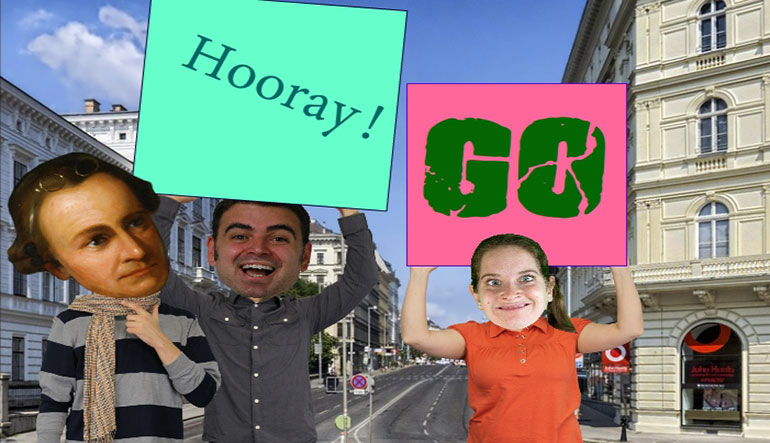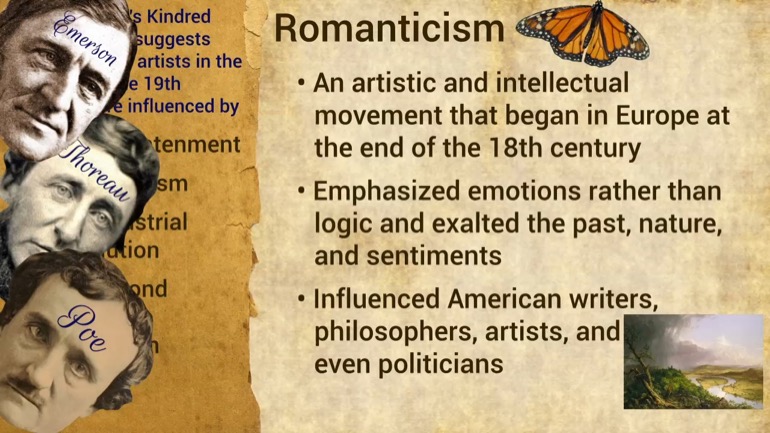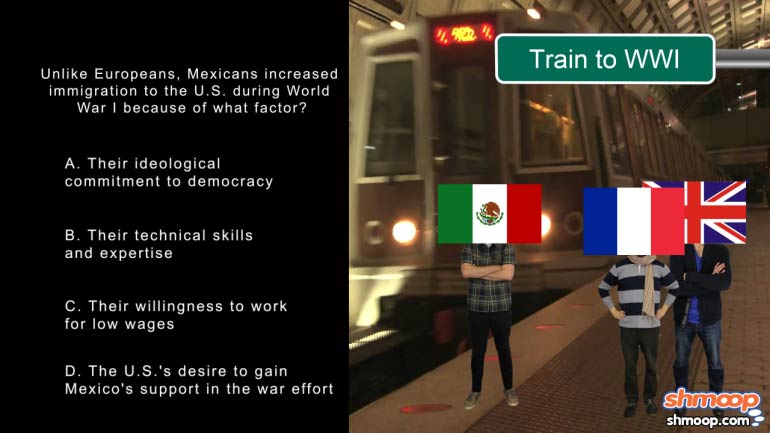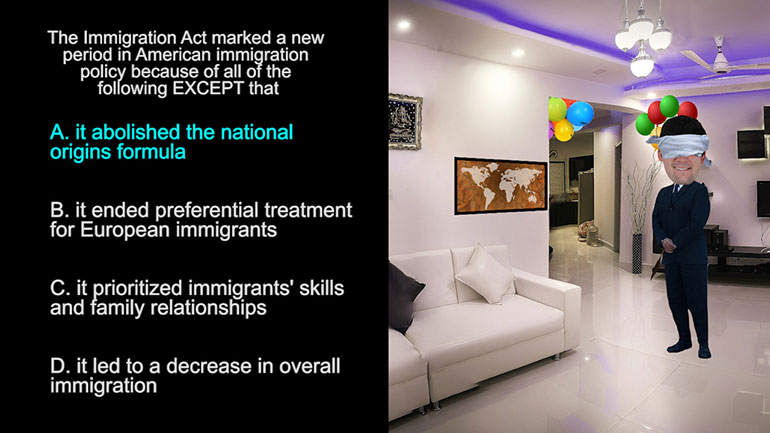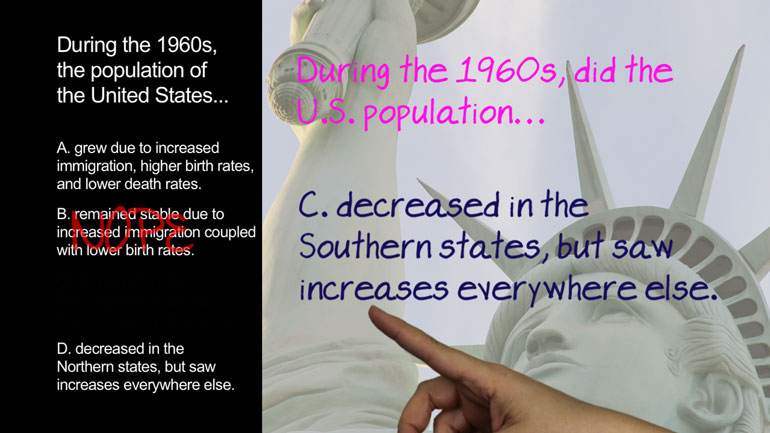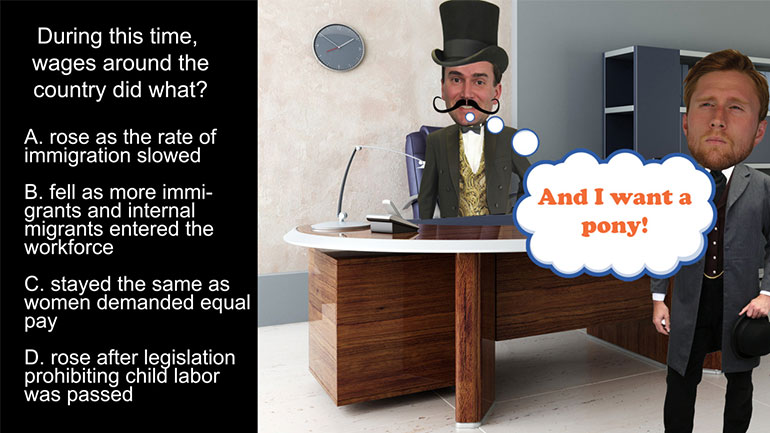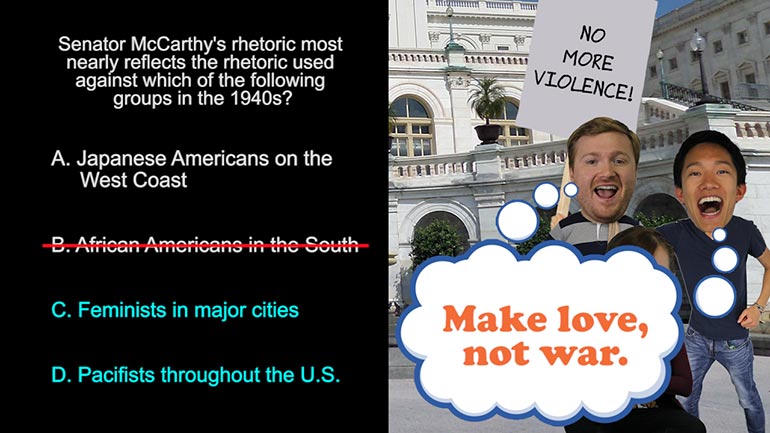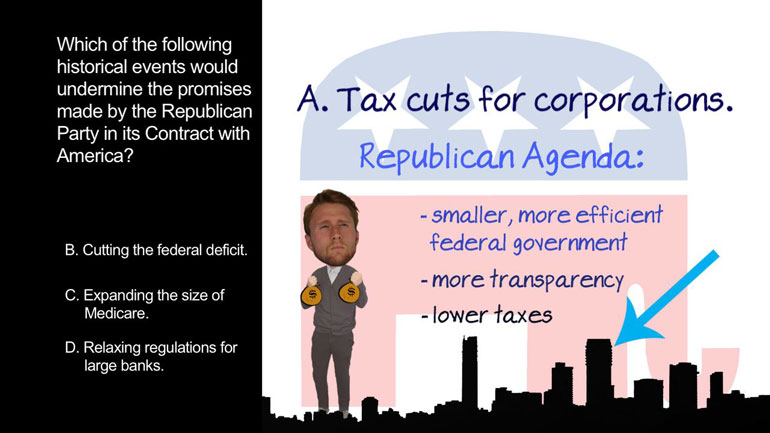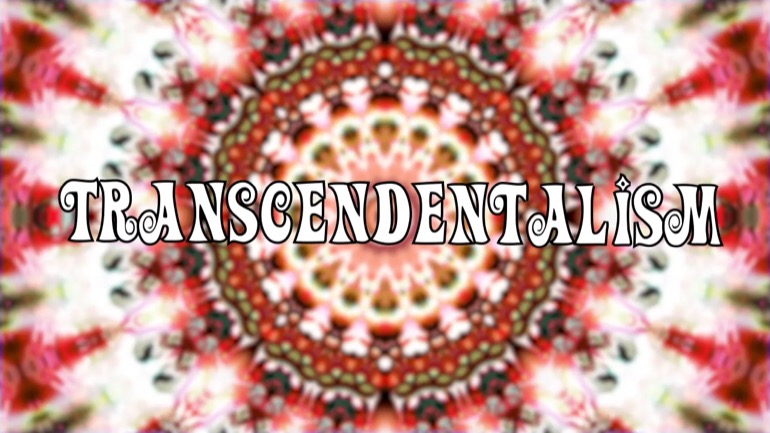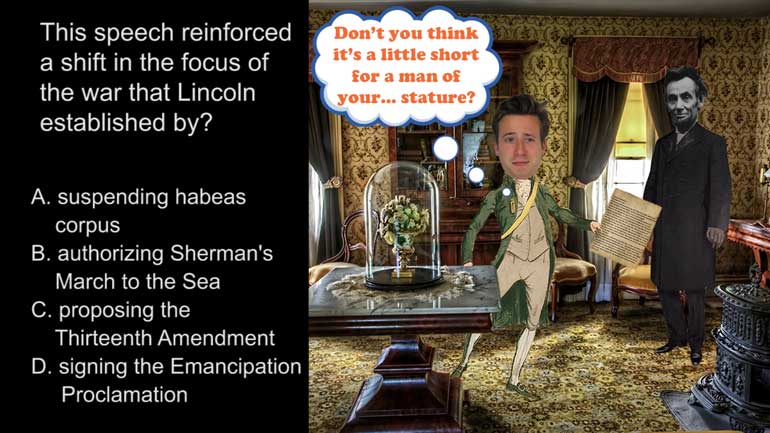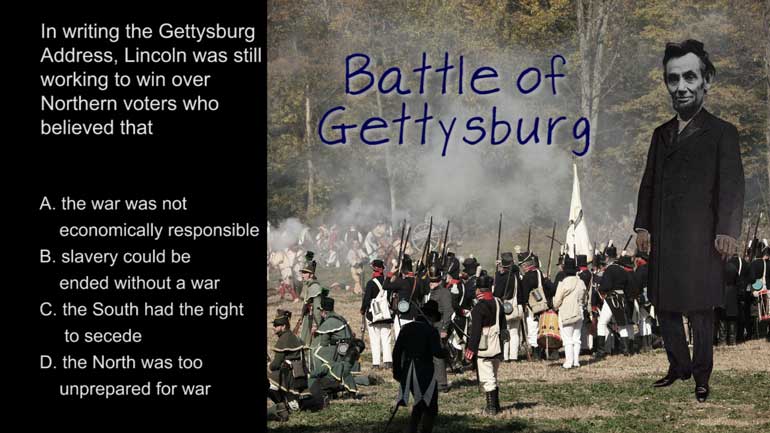ShmoopTube
Where Monty Python meets your 10th grade teacher.
Search Thousands of Shmoop Videos
U.S. History EOC Assessment Videos 64 videos
AP U.S. History 1.1 Period 5: 1848-1877. Which of the following groups would be most likely to support the idea of Manifest Destiny?
In the 1950s and 60s, people weren't just expressing their feelings toward the government—they were singing them, too. (Think Crosby, Stills, Nas...
Deal or no deal? FDR's New Deal provided hundreds of thousands of jobs in the public sector to bring the economy out of the Great Depression. It wa...
AP U.S. History 1.2 Period 6: 1865-1898 245 Views
Share It!
Description:
How did the wealthy justify their status and privilege? Other than the customary way of having large gold statues built in their likeness with signs that said "it's cool, we're super wealthy, don't worry about it"?
Transcript
- 00:00
[ musical flourish ]
- 00:03
And here's your Shmoop du jour, brought to you by robber barons,
- 00:06
criminals with excellent taste.
- 00:09
Yeah. All right, take a look at this excerpt.
- 00:11
[ mumbles ]
Full Transcript
- 00:15
[ mumbling continues ]
- 00:18
And the question: The wealthy justified their status
- 00:22
and privilege by... what?
- 00:24
And here are your potential answers.
- 00:26
[ bell rings ]
- 00:27
[ mumbles ] All right.
- 00:31
Well, from the excerpt we can see that wealthy industrialists
- 00:34
used ideas like Social Darwinism
- 00:36
to justify their incredible wealth in relation to the very poor.
- 00:41
So let's see which answer describes another way these
- 00:43
one percenters convinced the public that their boatloads of cash
- 00:47
were well-deserved.
- 00:50
Did the wealthy justify their status and privilege by
- 00:53
A - lobbying for reforms such as the eight hour work day?
- 00:58
Well, actually, all that wealth came at the expense of
- 01:01
the employees whom they habitually disregarded in their quest
- 01:04
for financial gain.
- 01:05
These industrialists broke strikes, suppressed dissent,
- 01:09
and forced workers to toil for grueling hours
- 01:12
all for capital P "Profit."
- 01:14
So the boss of the year award goes to...
- 01:17
none of these guys.
- 01:18
That eliminates A and B.
- 01:20
Could the wealthy have defended their status by C -
- 01:23
promoting more immigrants and minorities?
- 01:25
Well, these tycoons had no interest in doing any favors for their workers,
- 01:29
so promoting diversity wasn't even on their radar.
- 01:32
So it isn't C, either.
- 01:34
Which means that the wealthy justified their privilege by
- 01:36
D - committing highly visible acts of philanthropy.
- 01:40
During this time period, industrialists donated an insane amount of money
- 01:43
to charitable causes, including the arts,
- 01:46
public education, and medical research.
- 01:48
Of course, many of them did this as a way to divert attention
- 01:52
away from the horrible wrongs their companies were committing.
- 01:55
But at least we got Carnegie Hall, right?
- 01:58
So the correct answer is D. Looks like bad money actually
- 02:01
broke up the good.
- 02:04
[ Oh, my bones. ]
Related Videos
AP U.S. History Exam 2.45. The journey shown on the map was an example of...what?
AP U.S. History Exam 2.26. This speech reinforced a shift in the focus of the war that Lincoln established by...what?
What did the Spanish messengers bring with them to North America? Hint: you probably wouldn't be thrilled to get this for your next birthday.
AP U.S. History Diagnostic 24. How did the United States choose containment over the National Security Council Report in Latin America?
AP U.S. History Exam 2.25. In writing the Gettysburg Address, Lincoln was still working to win over Northern voters who believed that...what?
